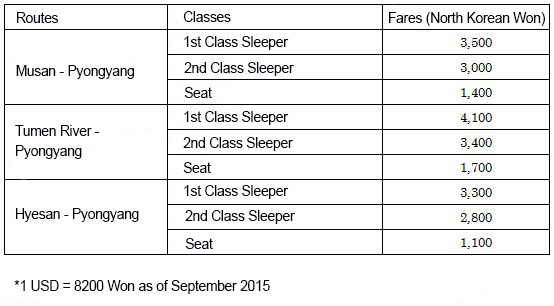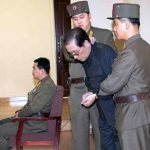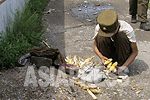
Black markets tickets are sold by workers from the train stations. The price for each train line, according to our reporting partner inside North Korea who works for the railway industry said that in September 2015,
“The price of tickets differs depending on the demand and also the season, however, it is more or less 5 to 6 times higher than that of the official one. Tickets to Pyongyang are expensive due to a shortage of them; the government restricts the number of people going there. A ticket from Mosan to Pyongyang is sold at 20,000 Won per seat”.
Related Article: <Inside N. Korea> Market survey shows “Resolution 2270”, the toughest-ever sanctions, didn’t work
According to our reporting partner, the state-fixed monthly wages of railway workers varied from 1,080 Won to 1,900 Won as of September 2015. The workers were divided into seven grades that affected their wages. At the same time rice was sold at 5,000 Won to 6,000 Won per kg in the markets, so the railway workers could not even buy 500g of rice from a month’s wage. Worse yet at this time the food supply had stopped. To survive the railway workers in charge of passengers now make their livings from selling tickets in the black market.
Next page: Examples of the boricha’ price...

























